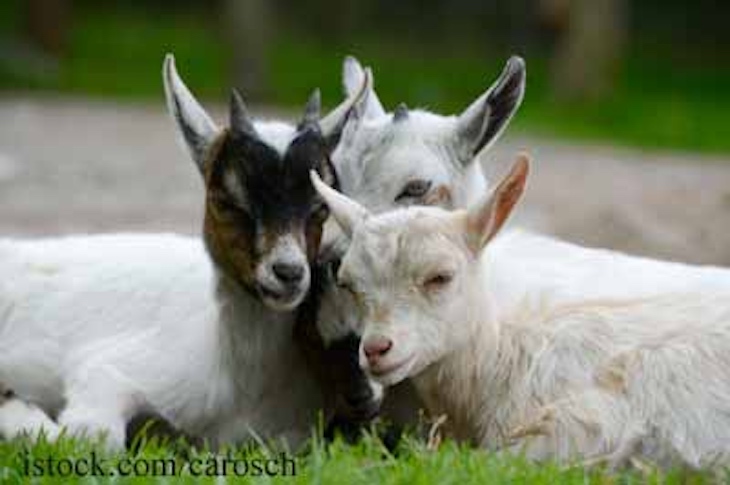A deadly E. coli O157:H7 outbreak associated with Lucky Ladd Farms goats in June and July of 2022 allegedly sickened 12 summer camp participants; two patients were secondary cases, according to the Tennessee Department of Health (TDH). One child sadly died. A report on the outbreak was issued today. The pathogen that caused the illnesses was Shiga toxin-producing E. coli O157:H7 (STEC).

On June 22, 2022, the Tennessee Department of Health was told of a child who was hospitalized in Florida with an E. coli O157:H7 infection after attending a goat husbandry summer camp at that farm in Rutherford County, Tennessee. Three days later, TDH got a call from the same mother saying she knew of a 2-year-old patient hospitalized at Vanderbilt in Nashville with hemolytic uremic syndrome (HUS). An outbreak investigation was launched.
The farm had many attractions for families, such as a petting zoo, pony rides, walking trails, splash pad, and three food service establishments. In the summer, the farm held multiple five day summer camps featuring animal husbandry for children aged six to ten. During the camp, children pick out a baby goat and take care of it.
The Patients
A list of 82 camp participants was obtained from the farm. An online survey was sent to all parents/guardians for case finding and exposure assessment. A primary confirmed case was defined as a person who attended any of the three camps from June 6, 2022 to June 24, 2022 and tested positing for STEC. A secondary case was defined as a household member or close contact of an attendee who tested positive for STEC.
Twelve primary cases and two secondary cases were identified. Illness onset dates ranged from June 10 to June 21, 2022. The median age was six years. The epidemiologic curve supports the likelihood that most of the primary cases were exposed sometime during the week they attended the camp. Two of the patients were hospitalized. The secondary hospitalized patient developed hemolytic ureic syndrome (HUS), a type of kidney failure, and died.
Environmental Testing
On June 28 and 29, environmental health staff visited the farm. A total of 28 environmental and water samples were collected by the TDH during these visits and were delivered to the Tennessee State Public Health Laboratory on the same day. Lucky Ladd Farms also collected 13 goat stool samples for testing.
Of the samples collected for this outbreak, nine were positive for STEC, representing three different serotypes: H14, O157:H7, and O26. All five E. coli O157:H7 specimens were closely related according to whole genome sequencing. The H14 and O26 specimens were not associated with the outbreak.
The two positive environmental samples were from a wooden post inside the farm where the baby goats were housed, and from a runny stool (animal origin not confirmed) on the side of the barn where the baby goats congregated. Some of the environmental samples matched patient isolates.
Lucky Ladd Farms Goats
Although the goats appeared to be well cared for and healthy, ruminant animals can carry STEC bacteria in their guts. Those animals do not get sick from this pathogen. Two of the baby goats tested positive for STEC and were euthanized. Lucky Ladd Farms moved the rest of the herd off the property and indefinitely stopped the animal husbandry part of the summer camp.
Conclusion
Lucky Ladd Farms voluntarily closed their facility on June 25, 2022. No ill food handlers, farm staff, or camper illnesses were reported to the farm during the three weeks of camp. The kitchen was in good repair.
There were several handwashing and hand sanitizing stations throughout the farm. The farm’s policy required handwashing immediately after goat handling and before eating. For smaller children, the staff assisted them.
The report states that one explanation for this outbreak is that during the camp, there may have been a period of increased STEC shedding in the baby goats, which can happen because of environmental changes and increased stress. The outbreak “likely occurred due to close contact with baby coats during their time at the camp.” The secondary illnesses were attributed to exposure with an infected household member.

If your child has been diagnosed with an E. coli O157:H7 infection or HUS after contact with Lucky Ladd goats during June 2022, please contact our experienced attorneys for help with a possible lawsuit at 1-888-377-8900 or text us at 612-261-0856. Our firm represents clients in lawsuits against petting zoos and farm tourism.




